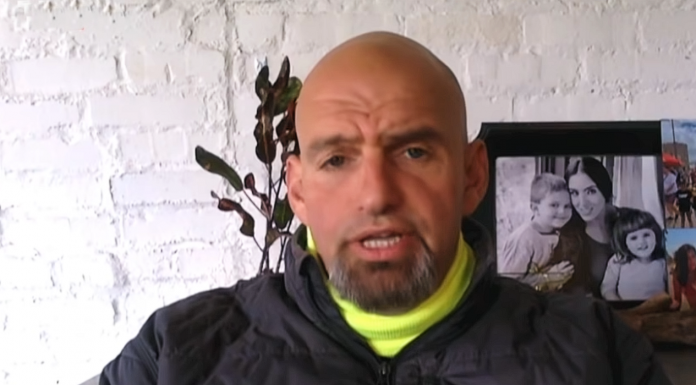Pennsylvania Lt. Gov. John Fetterman is facing backlash after claiming last week that concerns about election integrity are not constitutionally protected speech.
Fetterman, who is reportedly considering a run for Senate in 2022, suggested on Friday that Republican voters who question Pennsylvania’s election laws could face legal consequences.
“This idea that saying that Pennsylvania was ‘rigged’ or that we were ‘trying to steal the election,’ that’s a lie,” Fetterman said. “And you do not have the right — that is not protected speech.”
Pennsylvania Lt. Gov. John Fetterman: “This idea that saying that Pennsylvania was ‘rigged’ or that we were ‘trying to steal the election’ — that’s a lie. And you do not have the right, that is not protected speech.” pic.twitter.com/2f2ERSSLXy
— The Hill (@thehill) January 15, 2021
Fetterman argued Twitter, Facebook and other social media platforms should have started cracking down on President Donald Trump’s account even sooner because of his claims about voter fraud.
The Democrat compared Trump’s concerns to “yelling fire in a crowded theater when there is none,” an oft-parroted talking point as the increasingly authoritarian Left tries to justify its fascist crackdowns on civil liberties after months of turning a blind eye to violence among its own base.
“There is a difference,” Fetterman said. “That is not protected speech.”
Hard evidence supporting the allegations of vote fraud was presented during a hearing with Pennsylvania legislators, prompting the GOP-led legislature to denounce its own executive branch for abusing its power.
However, courts used a variety of procedural maneuvers, including lack of standing and laches—the claim that plaintiffs waited too late to file their complaint—to avoid hearing the cases.
Because the burden of proof needed to reverse the election would have been enormous, some have suggested that civil suits brought by the Republican victims of fraud pose a more promising way to expose it.
But Fetterman has continually doubled down on the spread of disinformation by insisting—despite the evidence—that Pennsylvania’s election was perfectly handled and that any suggestion otherwise should be silenced.
Trump “can talk all day about what his favorite football team is or that he’s the greatest president in the history of the world, but no one—Republican, Democrat, or whatever—has the right to say those kind of incendiary lies,” he claimed.
Critics were quick to point out that voter fraud concerns are, in fact, protected speech.
Lying is bad. It’s also not the same as truly holding views that most agree are ignorant [“the earth is flat”]. And most importantly, lying is still generally protected speech. This is why a plurality struck down the Stolen Valor Act as unconstitutional (United States v. Alvarez) https://t.co/KGStiaNvb2
— Amy Swearer (@AmySwearer) January 15, 2021
WARNING LABEL:
“This claim is determined to be ridiculously false.”
Signed,
US Constitution
(Will Twitter take it down? I’m not advocating it do so, just pointing out if they were “fact checking” and treating supposedly false claims fairly; they would.) https://t.co/1loj5tRcTw— Sharyl Attkisson?️♂️ (@SharylAttkisson) January 15, 2021
What if the lies about “trying to steal the election” are published and echoed by the republic’s most prominent media outlets, and are repeatedly debunked but nevertheless consistently revived by those outlets quoting anonymous officials, over half a decade?
Hypothetically? https://t.co/IBolII2xBy
— Omri Ceren (@omriceren) January 15, 2021
Headline USA’s Ben Sellers contributed to this report.

